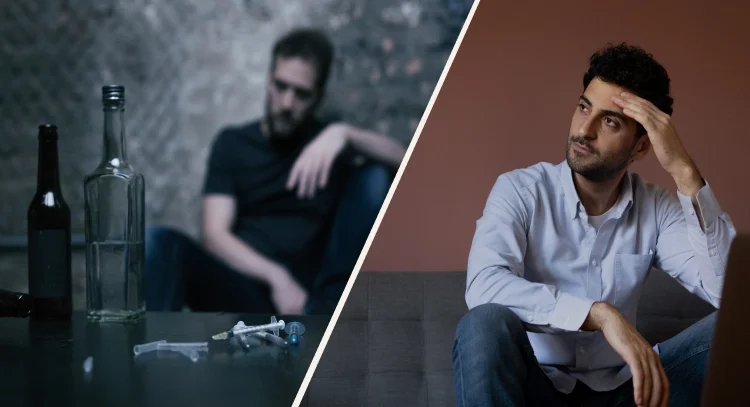Alcohol is a widely consumed substance that many people use to relax and unwind. While it might seem like a quick fix for stress and anxiety, the relationship between alcohol and anxiety is complex and often counterproductive. Understanding how alcohol affects anxiety levels can help individuals make more informed decisions about their drinking habits and seek healthier ways to manage stress.
The Initial Effects of Alcohol
In the short term, alcohol can indeed produce feelings of relaxation and euphoria. This is because alcohol acts as a central nervous system depressant, slowing down brain activity and increasing the release of certain neurotransmitters, such as dopamine and GABA (gamma-aminobutyric acid), which promote relaxation and reduce inhibitions.
Many people turn to alcohol for its immediate calming effects, especially in social situations or after a stressful day. The temporary relief it provides can make it seem like an effective way to manage anxiety. However, this initial calm is often misleading and short-lived.
Alcohol’s Impact on Anxiety Levels
While alcohol can temporarily reduce anxiety, it can ultimately exacerbate the problem in several ways:
- Rebound Anxiety: After the alcohol’s effects subside, the initial state of relaxation may transition into a rebound anxiety. This is because alcohol disrupts the balance of neurotransmitters in the brain. As the body metabolizes alcohol, the brain chemistry starts to shift back, often resulting in heightened anxiety levels. This can lead to a vicious cycle where individuals drink more to alleviate this increased anxiety, perpetuating dependence and worsening overall anxiety symptoms.
- Disruption of Sleep: Alcohol can interfere with sleep patterns, which is closely linked to anxiety. While it may help some people fall asleep faster, alcohol disrupts the quality of sleep by reducing REM (rapid eye movement) sleep, the restorative phase of sleep. Poor sleep quality and disrupted sleep patterns can significantly increase anxiety levels, creating a cycle of worsening anxiety and alcohol use.
- Increased Stress Hormones: Chronic alcohol consumption can increase the production of stress hormones such as cortisol. Elevated cortisol levels can lead to heightened anxiety and stress, both of which can have detrimental effects on mental health over time.
- Dependence and Withdrawal: Regular alcohol use can lead to physical dependence. When someone who is dependent on alcohol tries to cut back or stop drinking, they may experience withdrawal symptoms, which often include severe anxiety and agitation. This can make it challenging to quit drinking without professional help.
Long-term Effects of Alcohol on Anxiety
The prolonged impact of alcohol on anxiety is particularly worrisome. Persistent alcohol consumption may result in the onset of an anxiety disorder or exacerbate existing anxiety issues. As time passes, changes in the brain’s chemistry occur, making it challenging for individuals to manage their anxiety without relying on alcohol.
Healthier Ways to Manage Anxiety
Given the complex and often harmful relationship between alcohol and anxiety, it is essential to explore healthier ways to manage anxiety:
Exercise: Engaging in consistent physical activity has the potential to greatly decrease levels of anxiety. Physical exercise stimulates the production of endorphins, which act as natural mood enhancers. Additionally, it aids in lowering stress levels and enhancing the quality of sleep.
Monitoring Alcohol Intake: Using tools like Soberlink can help individuals monitor their alcohol consumption and maintain accountability. Soberlink Reviews are evidence of the effectiveness of this alcohol monitoring device in supporting sobriety and reducing anxiety related to alcohol dependence. t is designed to support individuals in maintaining accountability during their sobriety journey by sending instant results to designated contacts. The device features facial recognition technology to ensure accurate user verification, reducing the risk of tampering. Soberlink’s comprehensive reporting and alert system help users stay on track, making it a valuable tool for those seeking to manage their alcohol intake effectively.
Mindfulness and Meditation: Engaging in mindfulness and meditation techniques can assist individuals in coping with anxiety by fostering relaxation and diminishing the emphasis on worrisome thoughts. These methods promote a sense of tranquility and mindfulness in the current moment.
Therapy: Cognitive-behavioral therapy (CBT) and other forms of therapy can be highly effective in treating anxiety. Therapy provides individuals with tools to manage their anxiety without relying on substances like alcohol.
Support Groups: Connecting with others who understand and share similar experiences can be incredibly supportive. Support groups provide a sense of community and encouragement, which can help individuals cope with anxiety.
Conclusion
While alcohol may provide temporary relief from anxiety, its long-term effects can significantly worsen anxiety levels and lead to dependence. Understanding the complex relationship between alcohol and anxiety is crucial for making informed decisions about drinking. By exploring healthier ways to manage stress and anxiety, individuals can improve their mental health and overall well-being. If you or someone you know is struggling with alcohol use and anxiety, seeking professional help is an important step toward recovery and long-term health.





